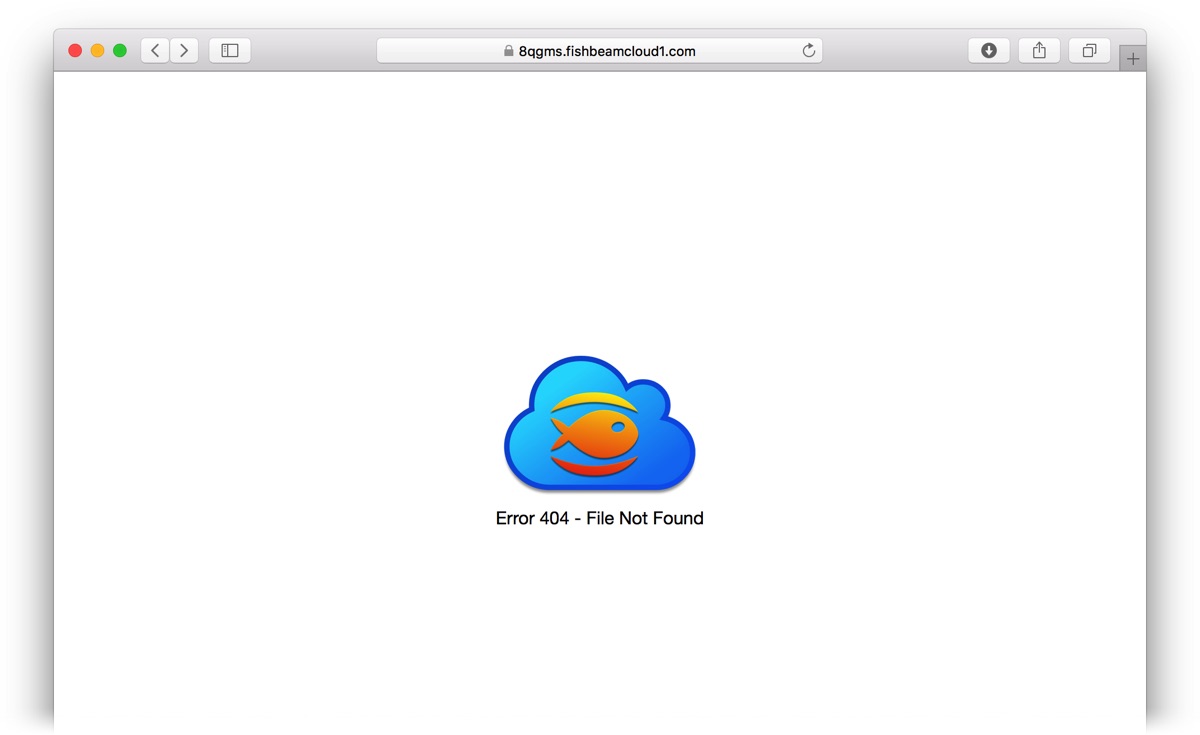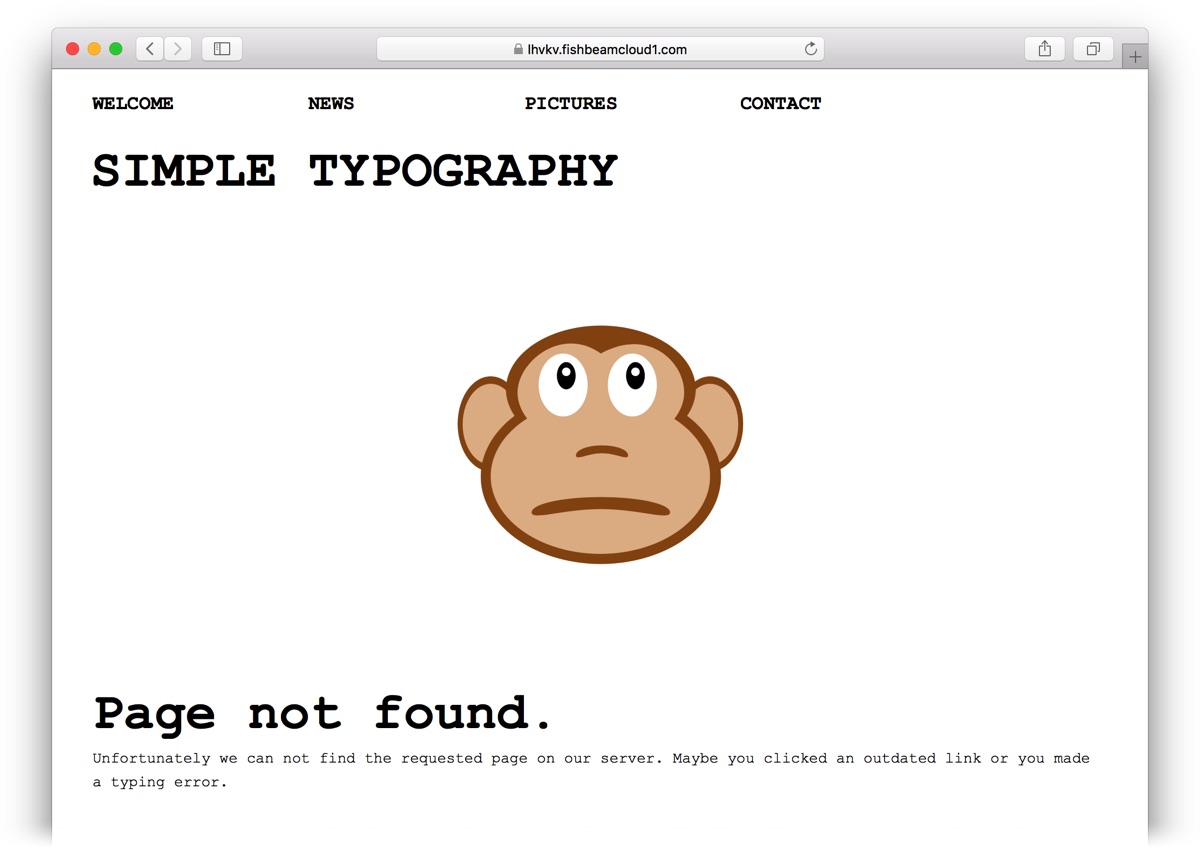 Custom Error Pages
Custom Error Pages
Set up custom error pages, that will be displayed for example if a subpage was not found. So you can keep users on your website, if something goes wrong.

If the user requests a page that was not found in the Fishbeam Cloud, an error message will be displayed with the Fishbeam Cloud logo by default. In order to get a better user experience and to inform the user in case of errors on existing pages, you can create your own error pages.
How to Make a Custom Error Page in Goldfish
- Open your website in Goldfish.
- Create a new page below the start page and name it error404.html or error404.php.

- Design the page according to your wishes.
- Important: Enable the option Page> Use absolute file paths in the page properties.
- Publish the changes.

From now on, the Fishbeam Cloud automatically shows your custom error page whenever a page is not found.
It is possible to use different error pages in each subfolder. The Fishbeam Cloud always looks in the current folder for an error page and if there is n't any it looks in the overlying folder. So you can create a mobile error page and put it in the folder /mobile/ for example. Then, this page will be shown to all users with a smartphone.
Types of Error Pages
In addition to error pages for the error 404 - Page not found, the Fishbeam Cloud also supports other error messages for which you can create separate pages.
| Error 401 - Unauthorized Access | Create the page error401.html or error401.php in Goldfish. This error page is loaded when trying to load a password-protected page without a valid password. |
|---|---|
| Error 403 - Forbidden | Create the page error403.html or error403.php in Goldfish. This error page is loaded if the web server does not have permission to deliver the page. |
| Error 404 - File Not Found | Create the page error404.html or error404.php in Goldfish. This error page is loaded if a page is not found. |
| Error 500 - Internal Server Error | Create the page error500.html or error500.php in Goldfish. This error page is loaded when a server error occurs, e.g. if the Fishbeam Cloud is overloaded. |
| All Errors | Create the page error.html or error.php in Goldfish. This general error page is loaded when one of the described errors occurs but no specific error page is found. |
Only create the error.html or error.php page if you do not want to create a separate page for each type of error. This page will be displayed then for every error, no matter of what type.